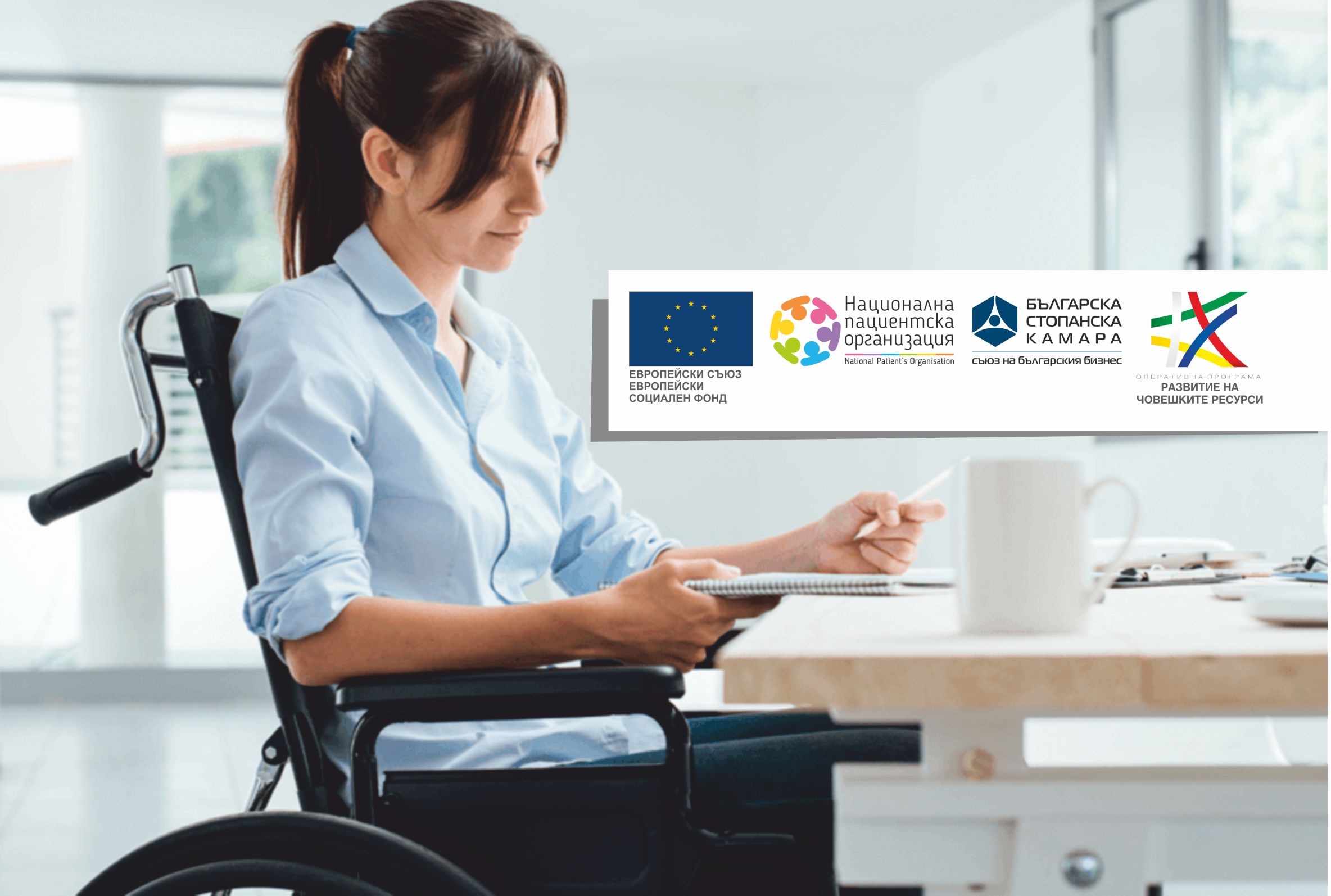202 people with disabilities and 88 members of their families have received professional assistance within a joint project of the National Patient Organization and the Bulgarian Industrial Association. The project "Providing support for employment of people with disabilities" is funded by the Operational Program "Human Resources Development" of the European Social Fund, and its main goal was to contribute to increasing access to employment for people with disabilities.
In Bulgaria, people with disabilities are one of the risk groups on the labor market. According to NSI data, one-third of them are of working age, but only about 10% are included in the employment. Various factors have an impact on their inclusion in the labor market, incl. discrimination, mistrust on the employers' part, limited opportunities for choosing professional development caused by deficits in their health status, social exclusion, and others.
An information portal was developed within the project - www.rabotazavseki.com, which facilitates people with disabilities to look for and find a job that meets their capabilities, needs, and professional goals. In it, disabled people and their families regularly find up-to-date and useful information about health and social services, practical advice, legal information, as well as training resources that are freely available to clients of social work. All participants in the project underwent training on how to use the resources of the portal, incl. how to assess their skills and competencies, thanks to the integration of the system for assessment of competencies MyCompetence.bg developed by BIA.
Thanks to the project, social workers from Vratsa, Plovdiv, Haskovo, Shumen, and Burgas provided support to persons with a reduced working capacity of over 20% and members of their families to support their adaptation to the labor market. Among the provided services are assistance in preparing a CV/motivation or cover letter; registration in job search platforms, inclusion in training and retraining courses; arranging meetings with employers and job interviews; referral to social services and rehabilitation; accompaniment to institutions (NSSI, NSP, TEMC, etc.), assistance in preparation and completion of documents and many others.
The lack of basic literacy and skills for working with digital devices are among the main challenges that experts identify in their work with people with disabilities. This lies within the educational structure of people with disabilities included in the initiative: 7% of them have no education at all, and 37% have primary or primary education, but in practice are functionally illiterate.
"Social work with people with disabilities hides many challenges, especially in a pandemic, which is why the approach of the team of social workers was strictly individual to each case. The needs and specifics of the people we worked with were very diverse and there are no general rules on how to lift their limited access to the labor market - many of them do not have information about the social services at a local level, they did not know their rights, they cannot adequately assess their capabilities and have lost faith in their abilities, including that they can be useful to themselves, their families and society, " Kristina Yordanova, a social worker at the National Patient Organization in Haskovo explained.
Despite the COVID-19 pandemic, which put people with disabilities in a particularly vulnerable situation and caused many of them to lock themselves in their homes for months and stop looking for work, thanks to the project, 24 of them started working on a permanent contract. Another 34 received job offers and is to be included in the labor market. Over 80% of the people covered by the initiative acquired knowledge and skills on how to look for jobs that match their capabilities, how to prepare well-drafted CVs and cover letters, how to prepare for a job interview and how to negotiate proper terms and working conditions with their employers.









